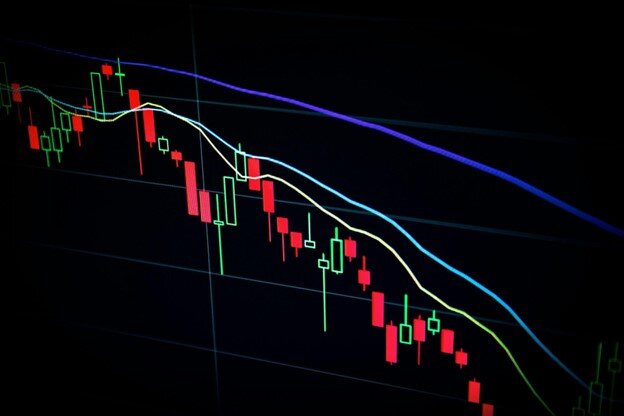How global conflict impacts the markets

Geopolitical conflicts are known to have a disruptive effect on global markets, with the prices of some assets being affected more significantly than others. In our new piece of analysis, Alpari has broken down the historical and current influence of global conflict on gold, crude oil and cryptocurrency prices, as well as how defense industry stocks are typically affected.
Global conflict may be on the rise with data from ACLED (Armed Conflict Location & Event Data) suggesting that the past several years have seen a rise in conflict around the world. Investors and traders will benefit from developing an understanding of how prices can fluctuate in response to conflict.
Gold
In our recent analysis of safe haven assets, we discussed the way that traders and investors turn to assets like gold in a strategy that aims to preserve capital and limit risk, at a time when markets are volatile and unstable.
Safe haven assets are so-called because they are expected to hold or increase their value even when the value of other assets declines. Investors and traders flock to assets like gold during periods of volatility, hoping to preserve their capital and limit exposure to risk.
Gold often rises during conflict, but multiple factors matter, including scale and duration, central bank policy, and inflation. For example, from the 2003 Iraq War through 2011, gold climbed from about $350/oz to record highs above $1,500/oz. In times of global tension, inflationary pressures can emerge, encouraging investors to shift into gold. Viewed as both a safe haven and a hedge against inflation, its limited supply strengthens the perception that it will preserve value during periods of uncertainty.
Oil
Crude oil is another asset that sees its price move, sometimes dramatically, in response to global conflict. There are several main oil benchmarks, or types of crude oil that serve as price references for this commodity. The most commonly referenced is Brent Crude, which serves as the benchmark for roughly two-thirds of internationally traded oil. The second most frequently used benchmark is West Texas Intermediate (WTI).
The price of crude oil has been seen historically to rise at the outbreak of conflicts. Conflict that erupts in or near major oil-producing regions or important shipping routes is more likely to disrupt oil prices. One example is the Iranian Revolution of 1979, followed by the start of the Iran-Iraq War in 1980, during which crude prices more than doubled from late-1970s levels.
There is also what is known as a “geopolitical risk premium” factored into the cost of crude oil. A certain amount of the price of crude oil per barrel is not the value of the commodity itself, but an additional cost that traders are willing to pay in case of future supply disruptions. Anticipation of disruption caused by conflict can see the benchmark price driven up.
These disruptions could take the form of fewer barrels of oil on the market; sanctions or embargoes placed on oil-producing countries; or damage to elements of oil infrastructure such as pipelines or production facilities. Trade routes may also be affected, or the cost of transportation.
In order to protect themselves from the impact of soaring oil prices, countries maintain strategic petroleum reserves. While crude oil prices can surge, the effect can be temporary as it is often stabilized by reserves, inventory levels, and the actions of OPEC+ (the Organization of the Petroleum Exporting Countries plus about ten other oil-producing countries, including Russia).
Cryptocurrency
A pattern has been observed of major cryptocurrencies like Bitcoin and Ethereum experiencing almost immediate price drops when conflict erupts. For instance, the price of Bitcoin fell quickly after Israeli air strikes on Iran this June.
However, cryptocurrencies have also shown relatively fast recoveries in these scenarios. During the escalation between Iran and Israel, Bitcoin briefly dropped below $99,000, but after a ceasefire announcement it rebounded several percent within a short time.
Cryptocurrency has also been used as a decentralized digital currency in times of conflict. At the same time, there remains a global risk of crypto being used to evade sanctions placed on countries, as well as a risk of fraud, with fake donation websites targeting those wishing to help.
Perceptions of the role of cryptocurrency are still evolving, with some arguing that it will become more integrated into traditional finance. Earlier this year, President Trump signed an Executive Order to establish a U.S. Strategic Bitcoin Reserve. How such changes shape the role of crypto may also affect how these assets behave in times of conflict.
Defense stocks
Defense industry stocks can also be affected by geopolitical conflict. In various countries, this sector tends to receive significant investment when government involvement in conflict intensifies.
Among investors and traders, opinion can be divided on whether or not to invest in this sector. Defense industry stocks are often not included in ESG funds, in which the stocks are selected based on their adherence to environmental, social and governance principles. On the other hand, some investors and traders are open to exposure to this sector.
Taking as an example two US based defense companies, you can see that times of conflict do not guarantee these stocks will rise. While Northrop Grumman Corporation has risen in value by approximately 23% this year, Lockheed Martin has fallen about 1% in the same period. Companies in any sector will see their stocks rise and fall based on many factors, including whether their profits and revenue live up to expectations.
With CFDs, traders can earn based on speculating whether the price of any stock or ETF will rise or fall.
Conclusion
Commodity prices such as gold and crude oil are often highly sensitive to geopolitical conflicts, and in recent years, cryptocurrencies have shown similar vulnerabilities.
No matter which assets traders and investors focus on, major global events can ripple across multiple markets.
Recognizing how conflict shapes market dynamics can help investors make more informed decisions and manage their portfolios more effectively.